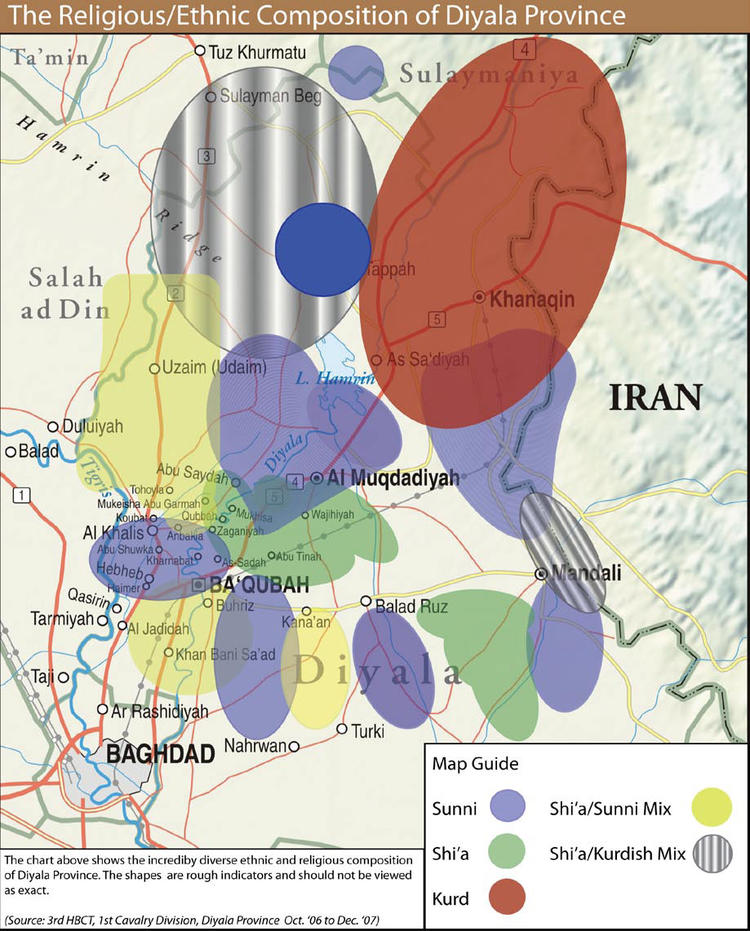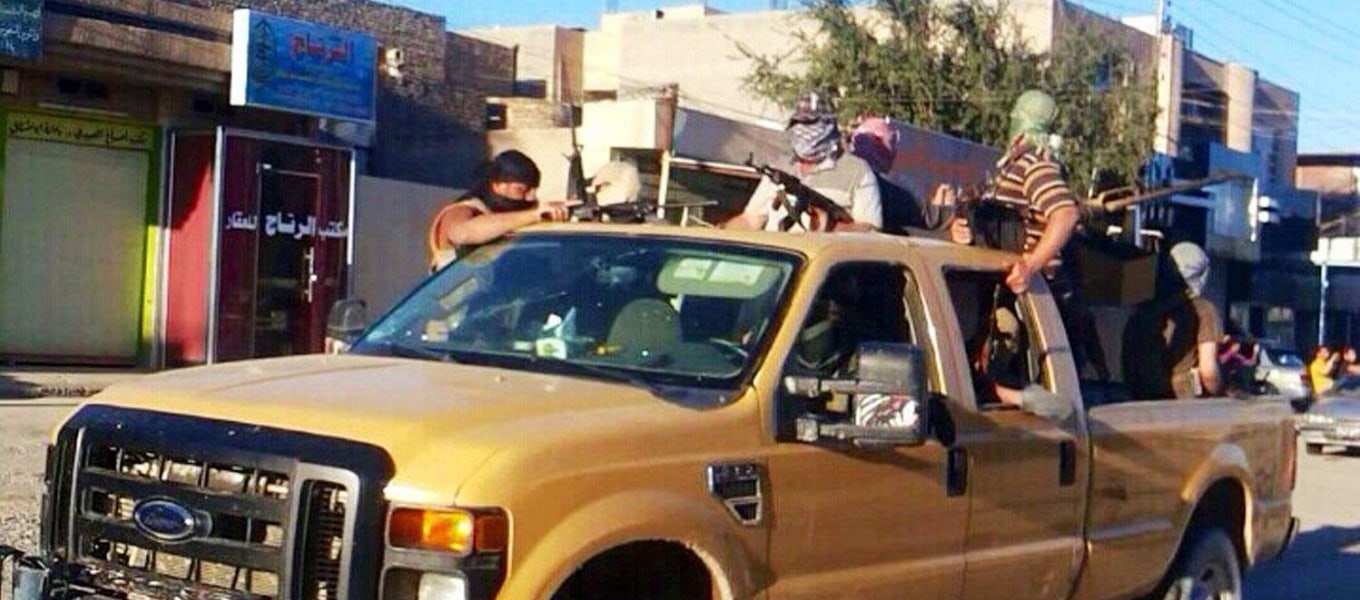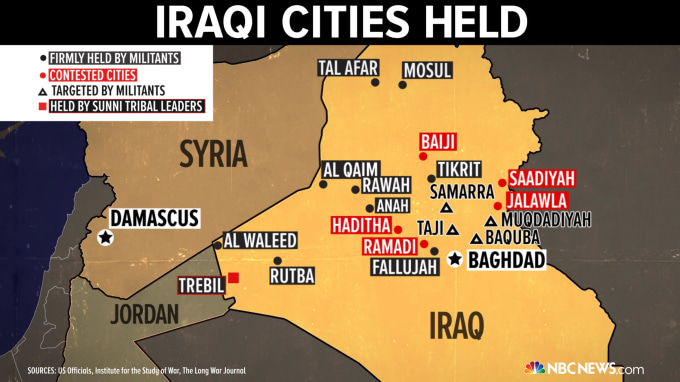Flooding Iraq
"As a tactical procedure to reopen the military forces in Al-Jazeera and Al-Badiyah security operation field, the security forces in Rawaa, Ana and Qaim withdraw from these areas to reinforce other troops in other areas."
Iraqi General Qassim Atta
"Around 50 vehicles full of militants and weapons came from Houran Valley and after sporadic clashes with police they took control over the central town. Then they left a group of them to secure the town and then headed toward the border."
Ratif Al-Ubaid, Rutba local council

General Atta's lengthy explanation could have been delivered in a more pithy manner; as, for example: "Our troops decamped", leaving the field to the incoming rapid advance of the Islamic State of Iraq and Al-Sham. While Mr. Al-Ubaid described the swift occupation of his town with the advance of ISIS militias which, having taken yet one more Iraqi town, moved on rapidly to another, leaving a scant few of their members to hold the town.
Iraqi army troops abandoned the Al-Qaim border post, and along with it, the towns of Rawaa and Ana. Under the pretense that the units which should have stood their ground and kept the Islamists from taking over, were responding to orders to join the battle in another area. General Atta failed to mention Rutba, where local officials spoke of ISIS militants burning the police station and briefly clashing with police before taking control.
 |
| The Associated Press -- Militants from the Islamic State of Iraq and Al-Sham patrol in Fallujah, 65 kilometres west of Baghdad Saturday |
On the main highway from Baghdad to the two border crossings into Syria and Jordan, the capital's main land route to Jordan has now been cut off; a key artery whose deteriorating security has now become final. That was on Saturday. A day later police fled from the last post at the Syrian border remaining in the military's possession, at Al-Waleed. Frightened police explained the army had already left, leaving the police to scatter when the militias arrived in their trucks.
Another border post, the Turaibil crossing into Jordan was also taken as the Islamists methodically consolidate their hold on the Sunni provinces to the west and the north while the Iraqi army is left to focus on protecting Baghdad. Baghdad, it increasingly seems, may be all that will be left to the Shia government of Nouri al-Maliki. Or his immediate successors, involvement of the Iranian Quds force and Hezbollah, regardless.
Jordan suddenly finds itself and its capital in the crosshairs of ISIS forces. A situation that will draw in other forces, like the United States which has emphatically stated it will not put boots on the ground, but may deploy air strikes against the ISIS advance, as may Israel, alongside Jordanian fighter jets, as this war extends and explodes its presence beyond the borders that once existed between Syria and Iraq.
With the border post of Al-Qaim taken with a three-day conflict, along with nearby towns, ISIS and its allied Sunni forces will be enabled to move on to the city of Haditha and its major dam. Iraq has dispatched 2,000 additional troops to the area, to secure the dam. Seventy volunteers who had left Baghdad to join the fighting with the Iraqi army during the Qaim conflict were killed in an ambush. Travelling in food freezer trucks to remain undetected, the militants had knowledge of their arrival.

With control of the borders between Syria and Iraq, ISIS will now readily supply its fighters in Syria with weapons looted from Iraqi warehouses, reinforcing its battle ability against the Syrian government forces. As for the 300 military advisers that the U.S. planned to send on to Baghdad to assist Iraqi forces, negotiations relating to their legal protection still haven't been worked out.
And if memory serves that very issue was the final sticking point that led the Obama administration to pull out all its troops from Iraq.
Labels: Conflict, Iraq, Islamists, Jordan, Shiite, Sunni, Syria

<< Home